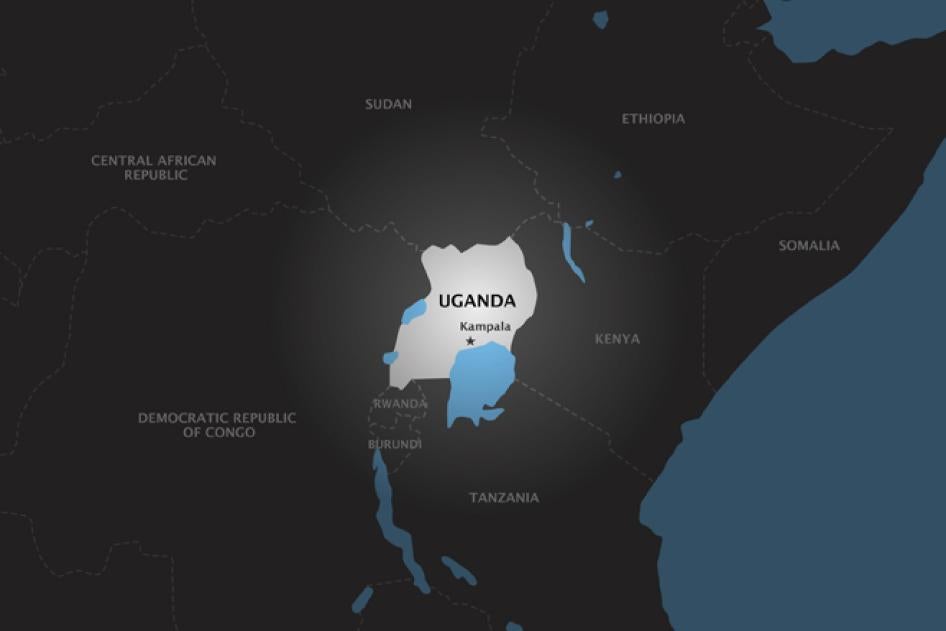The law lays out “special obligations” for organizations, including a requirement that groups should “not engage in any act which is prejudicial to the interests of Uganda or the dignity of the people of Uganda.” Another provision criminalizes any activities by organizations that have not been issued a permit by the government regulator, fundamentally undermining free association rights. The bill permits criminal sentences of up to three years for any violations of the act.
“Who can define the dignity of the people of all of Uganda, and will we face the threat of jail time if we don’t agree?” said Opiyo.
Groups should be able to criticize government action without fear of facing criminal charges, jail time, or harassment for the undefined violation of “the dignity of all Ugandans” or working in ways that are deemed prejudicial to national interests, Chapter Four, HRAPF, and Human Rights Watch said.
While many organizations operate in Uganda, those doing research and advocacy on some issues such as corruption, land, human rights, and governance have faced government pressure, including threats, forced closures of workshops, and ad hoc investigations by the government’s regulatory body. Government officials have alleged that some organizations are “economic saboteurs” and “anti-government” for their legitimate criticism of government actions. Under the NGO Act, the government could contend that legitimate criticism is “prejudicial to the interests of Uganda or the dignity of the people of Uganda.” For example, in 2012, the internal affairs minister ordered
one land rights organization to apologize to the president, saying that its documentation of an unlawful land grab and a brutal eviction caused “economic loss to some investors … [and] tainted the Country’s international image on investor management, the respect and promotion of human rights and even brought the person of the President in to disrepute.” The government never presented any evidence to indicate that the organization’s findings were factually incorrect.
Another group working to help local communities receive fair compensation for land used in a large-scale electricity project was said to be “bordering on sabotage of government programs” by the government agency involved in the project.
This law could also be used to obstruct the rights of sex workers, or lesbian, gay, bisexual, transgender, and intersex (LGBTI) organizations and any organization that supports their work or provides services to LGBTI people.
The government’s hostility to, and harassment of, Uganda’s LGBTI community has gone on for many years. Government officials demonizing homosexuality have targeted a vulnerable community and deliberately misinformed the public, stirring hatred and diverting attention from critical problems with the country’s governance.
LGBTI organizations are already forced to operate on the margins because the government has denied them to right to register on the grounds that they “promote homosexuality.” Though the country’s Constitutional Court ruled
the Anti-Homosexuality Act null and void in August 2014, colonial-era criminal laws make same-sex conduct punishable by life in prison.
In 2012, the police forcibly shut down two workshops about advocacy for the rights of LGBT people at the behest of the minister of state for ethics and integrity, though there is no grounding in law for such actions. Given widespread homophobia and transphobia, the bill could provide a legal basis for such closures and could be used to justify criminal prosecutions for such activities on the grounds that they violate the “dignity of all Ugandans.”
“The vague wording of this bill means that it’s impossible to know when someone’s conduct may run afoul of the government’s views,” said
Maria Burnett, senior Africa researcher at Human Rights Watch. “Groups should have the ability to organize and push for change in critical areas – including good governance, oil transparency, land rights, and human rights, without fear of ending up behind bars.”
It is not clear when the bill might reach President Yoweri Museveni for signing, but with
elections scheduled for mid-February 2016, it is an important time for independent groups to be able to freely express their views without fear. President Museveni should refuse to assent to the law and instead return it to parliament to recommit the troubling provisions to fresh debate and compliance with international human rights standards.
The earlier version of the bill would have granted the internal affairs minister and the government regulatory body broad powers to supervise, approve, inspect, and dissolve all nongovernmental and community-based organizations. The parliamentary committee on defense and internal affairs wrote a report recommending a series of revisions, including reducing the minister’s authority and allowing groups greater freedom to operate. That committee’s work formed the basis for many of the positive changes parliament accepted during the debate on the bill.
“Any law regulating the nonprofit sector should have a presumption in favor of free, informal and peaceful association of citizens without requiring a permit, as the bedrock of freedom of association,” said Adrian Juuko, Executive Director of Human Rights Awareness and Promotion Platform. “Any presumption that civic organizations are ill-intentioned is without basis and the criminalization of free and informal organizing unjustifiably violates association rights.”








